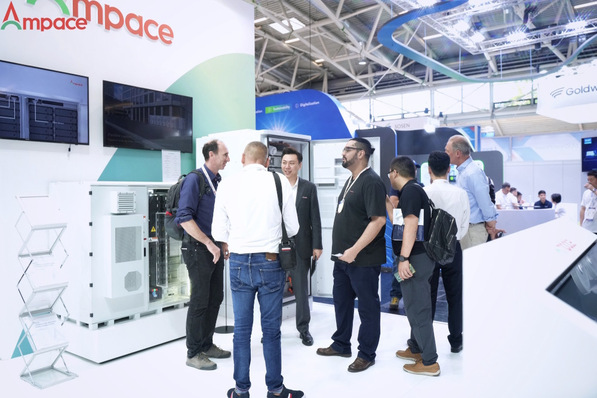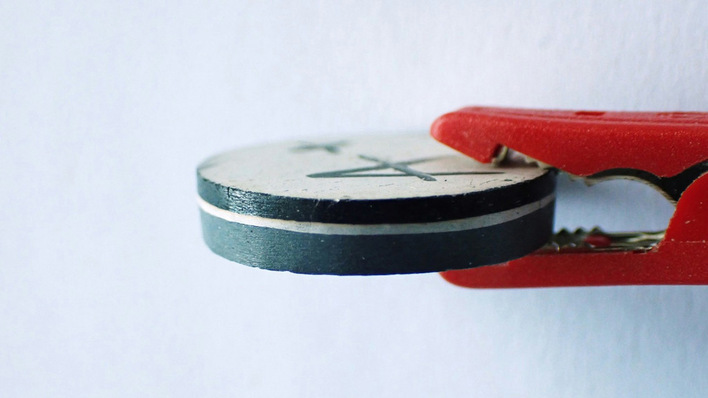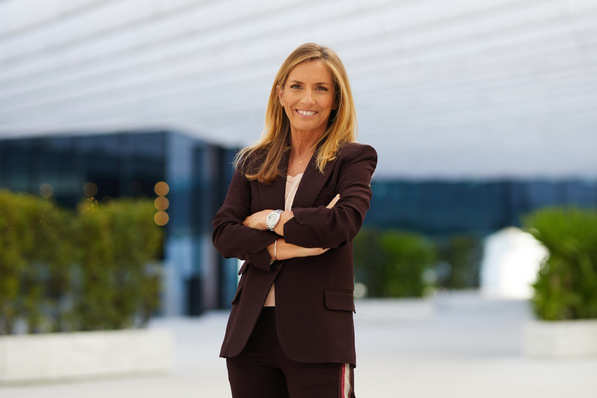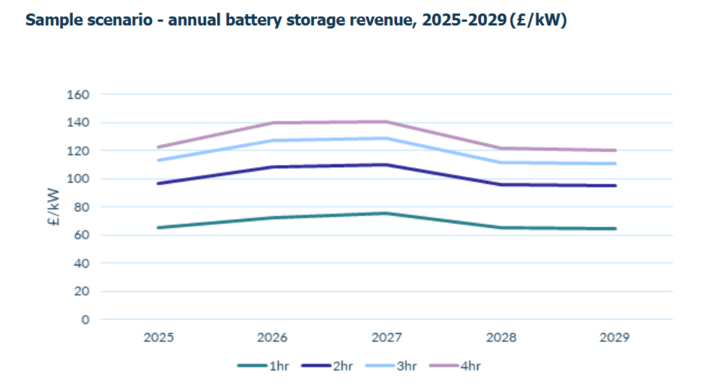The storage market is young and faces many uncertainties. How would you assess the past year?
Thomas Pilgram: For us, 2017 was alright as a year, even though the German market did not grow as much as some experts had forecast at the beginning of the year: We sold about 5,100 storage units.
All of them in Germany?
Thomas Pilgram: No. About 100 units went to Italy, where we had started delivery during the fourth quarter.
How many members of staff does Senec currently have?
Maximilian von Grundherr: We employ 110 staff. They are a young and dynamic, and most importantly motivated team, dedicated to helping us realise our vision.
How well have you been able to extend your sales network?
Thomas Pilgram: We sell our Senec storage units via three wholesalers and almost 550 specialist retailers. At the end of 2016 we had only 320 retailers. The market in Austria is being developed through the retailers of that country. We are not yet active in Switzerland.
Maximilian von Grundherr: Switzerland is a tri-lingual country. So far, we only sell in Germany and Italy. Once we decide to, for example, also develop the French market, it would make sense to also include Switzerland. But probably not before.
How did entering into the Italian market go?
Thomas Pilgram: With 100 units sold in the last quarter of 2017, we sold more than we had been expecting. But it is also about sticking as many pins into as many countries as possible on our map of the world. It takes certain sales figures to justify the effort. Otherwise it just is not worth it. Italy does indeed have potential.
There is general talk about a booming storage market in Australia. How are things going there?
Thomas Pilgram: Our small crew in Perth has been active for about a year. We wanted to start shipping in 2017, but the effort in getting our units certified was just very great. That cost us time and funds. Finally, in January 2018 we were at last able to dispatch the first containers. In Australia, we are in cooperation with a large local partner that takes care of the customer service and first-level support for us.
How many units are you intending to sell in Australia this year?
Thomas Pilgram: Between 600 and 1,000 – we are very optimistic in our expectations. We have cleared the worst hurdles of the certification process. Australia thinks very highly of Europe, “Made in Germany” is very important, just as in Italy. And, of course, our all-round energy solution consisting of storage battery and cloud also gives us an edge.
Would manufacturing in Australia be worthwhile at this volume?
Maximilian von Grundherr: No. For the foreseeable future, we will continue to supply this market from Germany. Here we have developed very flexible manufacturing procedures and have qualified our suppliers. The power electronics are being built to our very own specifications.
Do you build your own battery modules?
Maximilian von Grundherr: Our goal has always been to develop our own battery modules and have them built. But that does not mean that we are going to cut corners when it comes to the quality and safety of our storage systems. In 2017, we managed to bring our error rate down to 1.5 percent. That was an important step ahead. We also improved our customer service, even for our older systems.
How many people are on your customer service staff?
Maximilian von Grundherr: 15 people. This year, we want to further improve the speed and quality of our customer service. It is the key support for our specialist partners and the retailers. What those value most with us is that work with them as equals and take their needs and criticism seriously.
Your business is based on hardware, while the other side of the coin is smart applications. How is the Senec Cloud going?
Thomas Pilgram: Nowadays, 70 percent of our units are sold in combination with a cloud solution. Our Cloud also allows the use of the electricity for heat pumps or to produce hot water. That is a key USP, which perfectly meets our customers’ most important purchasing motive: independence from the utilities. We introduced the new Cloud-to-Go, which allows them to practically use their solar electricity for charging their EVS anywhere in Europe. That makes cloud solutions into a sort of extension cord for their solar installation: They can use their solar power when and where ever they want. With our new service Family and Friends, they can even share their electricity, for instance with children that have left the home to go to university and now live somewhere else in their student pad.
Are you planning to get involved in the commercial storage market?
Thomas Pilgram: The top capacity for our lithium units is currently at 30 kilowatt hours. 30 kilowatt hours work really well in the segment of small businesses. We provide a special cloud solution to our installing company partners, with which they can address their commercial customers. That is an individualised version of our Power Cloud, which for instance allows the direct marketing of solar power. Because we want out partners and customers to cover as much of their roofs as possible with PV. Our recommendation: Put up there what will fit.
Will you present larger storage units this year?
Thomas Pilgram: When it comes to commercial storage, size alone is not everything. With the price for lithium cells coming down, large unit are becoming more interesting, that goes without saying. But storage units also need to be modular, in order to quickly adapt them to changing demands. High output is needed and an appropriate management system, and that does not only affect the hardware.
But also in terms of sales strategies, there is a massive difference between commercial and domestic storage for private end customers…
Thomas Pilgram: Exactly. It is more based on specific projects. There are different marketing cascades that one has to go through to sell the units. And also, the price pressure is much higher in the commercial segment. I see our 30-kilowatt unit more as being suitable for larger residential buildings or in Australia. Because of the increased use of air conditioning and the extreme discrepancy in the prices between cheap off-peak and very expensive during the heat of the day, there is a greater demand for storage there.
Looking ahead: What are you expecting to sell in 2018?
Thomas Pilgram: In Australia, as mentioned before, we are expecting significant growth. There, storage is even cost-effective without PV, since it allows the storing of electricity during the off-peak in the night, which can then be used for cooling during the heat of the day. And in combination with PV, the efficiency of the batteries can go up quite significantly. In the other markets we intend to grow along with the market or at least keep pace.
Maximilian von Grundherr: Growing sustainably is important to us. In 2017, we have strengthened our equity base in order to be ready for 2018. This is not about selling as many storage units as possible. We want to further lower our error rate and continue to improve our service. And very important: We want to go on improving the cooperation with our installing company partners.
In addition to Germany, Australia and Italy, do you see any other potentially interesting storage markets?
Thomas Pilgram: I see Austria even ahead, say, of France. The Austrian market is very close to our domestic market – in terms of language, culture and physical location. Also, the electricity market there allows us to offer great services. The UK or Czechia could also become interesting, but not until after 2018. These markets all have their own challenges, because each of them is different technologically and in terms of the dominant business model.
Do you intend to expand your network of specialist partners?
Thomas Pilgram: Our partners among the installing companies are our major sales channel. For them, it is not all about the most inexpensive equipment, but about attractive profit margins. In Germany, our partner companies are distributed fairly evenly, apart from just a few spots of the map that are not covered. In 2017, we were able to win numerous new partners, but do not intend to increase the number of companies much further. It is more about that our partners understand our overall mission and implement that together with us. To that end, we started a deal at the end of last year: If the installing company or their customer decides to switch to a BMW i3, then we cover the lease payments for the first year. That is very popular – and an important incentive to buy for the customers.
The interview was conducted by Heiko Schwarzburger.
Stay informed, get our newsletter twice a week.
Register here: http://www.pveurope.eu/Newsletter
Join our Guided Tours at The smarter E and EES Europe 2018 in Munich!
http://www.pveurope.eu/News/Solar-Generator/The-smarter-E-Europe-2018-Guided-Tours-for-Professionals-pv-Guided-Tours
Read more on energy storage in Europe:
http://www.pveurope.eu/News/Energy-Storage/Senec-Italy-expands-distribution-of-energy-storage-systems
http://www.pveurope.eu/News/Energy-Storage/UK-distribution-launch-of-MyReserve-Matrix-battery-at-Ecobuild
http://www.pveurope.eu/News/Energy-Storage/Storage-advice-Island-inverters-are-key-to-system-speed
http://www.pveurope.eu/News/Energy-Storage/Installed-lithium-ion-battery-costs-below-USD-200-per-kWh
Read more about solar energy storage.







